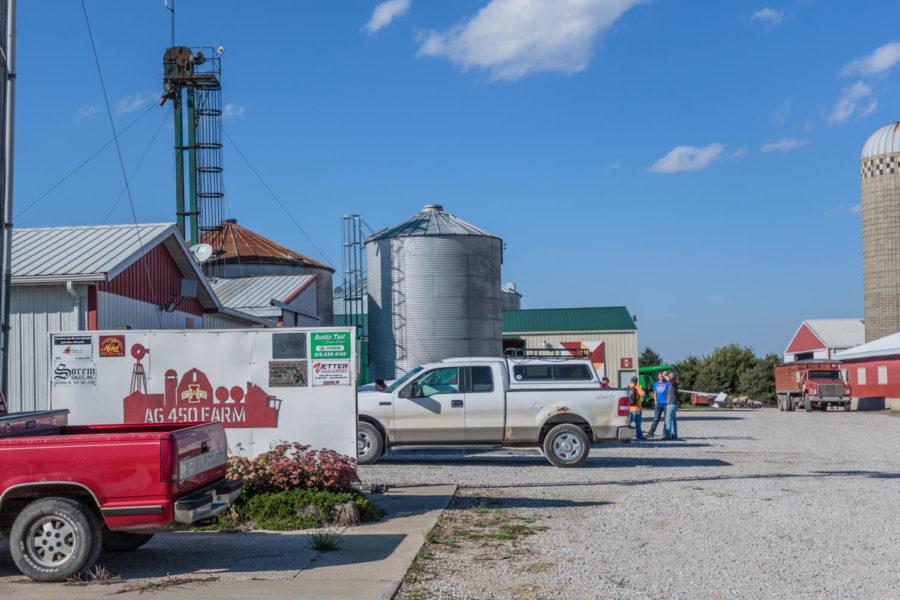Ag 450 farm celebrates 75-year anniversary
David Boschwitz/Iowa State Daily
Seniors in Agricultural Studies pack up after class on the Ag450 farm.
September 20, 2018
Iowa State’s student-run Ag 450 farm is celebrating its 75 years.
The farm started 75 years ago when William Murray, professor of economics, was convinced that students at Iowa State needed experience managing a farm to prepare them for farming and other agriculture-related careers.
What started out as an 187-acre operation with pigs, cows, chickens and mules to pull machinery, is now a 900-acre farm that manages about 4,000 hogs per year, said Robert Frutchey, who is the instructor in charge of the course.
“I wouldn’t have a bachelor’s degree, let alone a master’s, if it weren’t for this program,” Frutchey said.
Physically, the farm has changed in many ways. The buildings have been updated for efficiency and machinery has been added to the farm.
Likewise, the number of students has also changed. Years ago, Murray’s class only had 10 students enrolled. Today, the class has 67 students enrolled in the fall and spring semesters.
The Ag 450 farm is the only entirely student-managed farm at a land-grant university in the nation.
“It’s very exciting and makes me proud to be able to hold that title and to be a part of it,” said Erin De Tar, senior in agricultural studies.
Ag 450 is a capstone course for students and allows them to communicate with peers and develop professional relationships, Frutchey said.
Running the farm gives students a sense of what it’s like in the real world, as well as teaches them how to be a successful community member. The class is designed to have students learn by doing and help with their future careers.
“The university’s slogan is: ‘Science with practice,’ and that’s exactly what we’re doing. We’re taking the science part and putting it into a practical setting,” Frutchey said.
The class is broken up into two sections. On Tuesdays, they meets in the Hansen Agricultural Student Learning Center to talk about what’s going in the world of agriculture and how it affects them.
Then, on Thursdays, students go out to the farm and put what they learned earlier in the week into a practical setting. From there they break out into different committees and either talk with Frutchey or start working on the farm.
“The goal of this class is to replicate how a typical family farm in Iowa works and operates, and I believe it does just that,” De Tar said.
Each committee within the class is given what is called a strategic issue. Strategic issues are designed to have students communicate effectively with the other committees so they can work out each of their issues. This also helps students learn all the different aspects that go in to making a farm work.
“Students can learn all kinds of different aspects that they didn’t know or know very little about, so it’s important to have a unified class that can communicate very well,” De Tar said.
The farm is still affected by the markets and recessions, and is just as vulnerable to animal diseases, Frutchey said.
The goal for the farm is to provide the best curriculum possible and evolve as the class evolves.
“It’s like a giant puzzle; there’s all kinds of different aspects and you have to find where each goes to make it work,” Frutchey said.







